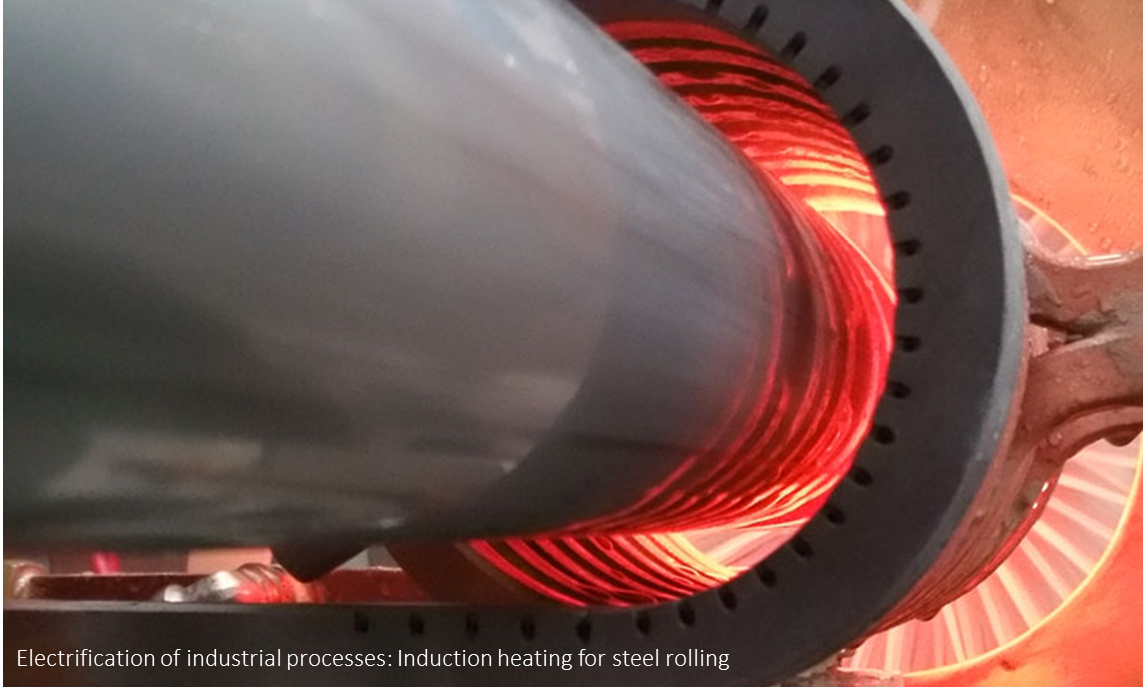Over the next 12 months Electric Places will collaborate with partners including Tata Steel and North Northamptonshire Council to:
- Develop a Decarbonisation Plan for Local Industry to Transition
- Establish a Body to Drive Transition to Low Carbon Economy
Innovate UK is supporting industry and manufacturers in North Northamptonshire to decarbonise, reduce their emissions and avoid carbon leakage.
DECODE-CORBY aims to revolutionise the steel and manufacturing community in Corby, Northamptonshire. The UK’s biggest steelmaker, Tata Steel, has a 150-acre site in Corby, and the town is a crucial hub for producing and transporting essential goods for the UK.
DECODE-CORBY’s impact will go beyond its local borders. By creating a peer reviewed evidence base, this project will pioneer ways to decarbonise dispersed industrial clusters in grid-constrained areas across the UK. By sharing project findings, best practices, and lessons learned, DECODE-CORBY will accelerate a nationwide movement towards industrial sustainability.
For more information...
Corby faces a significant challenge due to its strong manufacturing sector. Carbon emissions per capita for Corby have been reduced by 50% to 6.5tCO2e in 2017, but they are still 20% above the national average of 5.4 tCO2e per capita.
The project aims to transform Corby into a sustainable steel and manufacturing beacon for the future by fostering collaboration among a cluster of manufacturers, low-carbon technology pioneers, the local authority, and the National Grid (DNO).
Together, we will shape an agreed decarbonisation plan that will revolutionise the region’s energy landscape and form a delivery body to coordinate and drive the necessary transformation to low carbon economy.
A Digital Twin (interactive geospatial model of the area) will be used to simulate different place-based decarbonisation scenarios and a Carbon Management Platform powered by AI will help analyse the complex data sets and produce recommendations for decarbonisation. This is particularly important as the area faces crippling electricity network constraints that currently hinder renewable energy growth.
The project will explore innovate ways for industry clusters to access shared waste heat, optimise grid capacity costs, and harness the power of large-scale renewable generation in grid constrained areas. Embracing circular economy principles and promoting supply chain efficiencies, DECODE-CORBY will foster industrial symbiosis, where resource sharing and waste utilisation become the cornerstones of a greener tomorrow.
With a commitment to long-term success, DECODE-CORBY’s organisational delivery body will keep driving change until successful decarbonisation is achieved over the next 10-15 years. Continuing the legacy of Electric Corby CIC’s pioneering efforts, DECODE-CORBY will put Corby at the forefront of the green revolution.
Project objectives
- create a new organisational body fostering collaboration among key stakeholders, including manufacturers, low-carbon technology and platform developers, distribution network operators (DNOs), local communities and the local authority.
- disseminate the evidence base we developed through our UK Community Renewal Fund supported project North Northamptonshire to Net Zero (NN2NZ)
project on current emissions in the local area. - gather existing decarbonisation plans, such as Tata’s extensive decarbonisation and scope 3 supply chain insetting programmes
- act as the coordinator and project manager for amalgamating existing plans, measuring their impact and reach for net zero
- leverage our digital twin to ‘optioneer’ different strategies and find best economic/environmental/social solutions, including overcoming grid constraints
- Recommend and agree a credible strategic decarbonisation plan to close the net zero gap aligned to existing industrial members industries and their capabilities
- Where there is a gap in capabilities, we will plan how to build the necessary skills (e.g.legal/technical) to enable long-term implementation beyond the
funding period.




